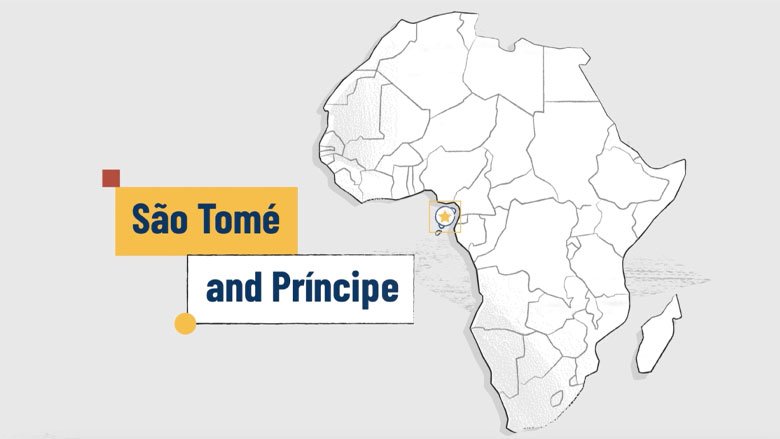WASHINGTON, January 23, 2024 — The World Bank Group announced a new Country Partnership Framework (CPF) for São Tomé and Príncipe (STP) for the period 2024–2029. The CPF, discussed today by the World Bank’s Board of Executive Directors, lays out a selective program for partnership between the Bank and the island state.
Under the new framework, the World Bank will support STP’s transition from a public sector-led growth model that is heavily dependent on external finance, to a more sustainable and inclusive growth model. The strategy is aligned with the World Bank’s new vision and mission of creating a world free of poverty on a livable planet, with the aim of strengthening resilience of the Santomean people, economy, and environment.
“The new Country Partnership Framework is poised to lay the foundation for sustained inclusive economic growth and job opportunities for Santomeans,” said Albert Zeufack, World Bank Country Director for Angola, Burundi, the Democratic Republic of Congo, and São Tomé and Príncipe. “This is a country of pristine natural beauty and resources, with significant potential for high-end tourism, sustainable fisheries, and climate-smart agriculture. Continued investments in renewable energy, connectivity, and human capital will contribute to unleashing its potential."
Through a highly selective and sequenced set of engagements, focusing on the energy, digital, road transport, and education sectors, the Word Bank Group aims to address critical constraints to sustainable and inclusive growth and development in STP. An integral part of the engagement will be to increase STP’s resilience to climate change and weather-related events while ensuring the country can benefit from its significant natural wealth.
“We look forward to implementing engagements under this targeted framework, which aims to lower electricity costs, strengthen the efficiency of public spending, improve access to quality education and skills training, and strengthen connectivity,” said Juan Carlos Alvarez, World Bank Country Manager for Angola and São Tomé and Príncipe. “Women and youth will be empowered with more opportunities that will enable them to realize their full potential.”
A series of policy notes and other analytical work helped define CPF priorities, together with consultations with key stakeholder groups. These stakeholders include the government, the private sector, civil society, think tanks, academia, and other development partners. All participants, as well as lessons learned from previous strategies, informed the CPF, which is intended to spark economic transformation while contributing to green, resilient, and inclusive development.

